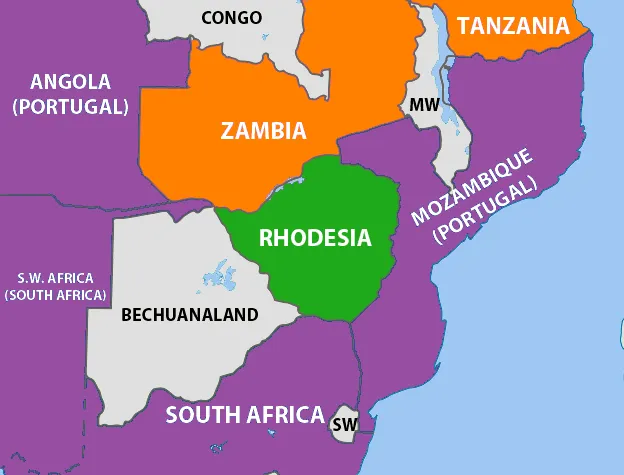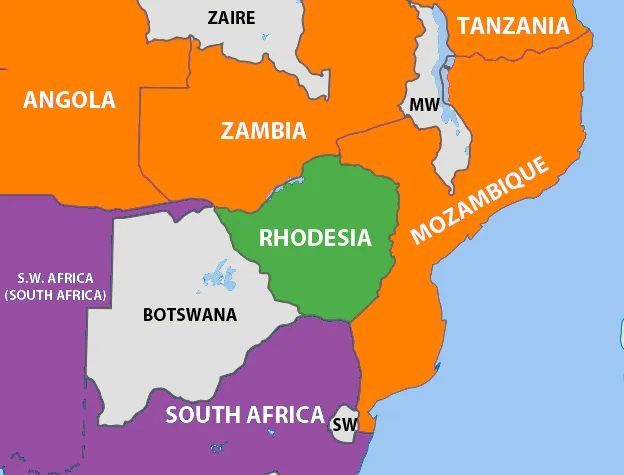With Angolans fighting for independence from Portugal on the west coast of Southern Africa it wasn't long before the Mozambican's wanted the same thing on the east coast.
As we will see Southern Africa became an increasingly troubled sub continent in the 60's and it seemed much of the world was meddling.
The Mozambican War of Independence war started on September 25, 1964.
The formation of the Mozambican guerrilla organisation FRELIMO and the support of the Soviet Union, China, Cuba, Yugoslavia, Bulgaria, Tanzania, Zambia, Egypt, Algeria and Gaddafi regime in Libya through arms and advisers, led to the outbreak of violence that was to last over a decade.
Guerrilla attacks in northern Mozambique began from bases in Tanzania. the monsoon season was a favored season in which to conduct attacks since it was harder to track insurgents by air during heavy rain and moment of ground troops was hampered by muddy conditions.
Within a couple of months the newly Independent nation of Malawi was also utilized as a launchpad or retreat after attacking the Portuguese.

By Cliftonian , CC0, Link
As conflict headed further south it is not surprising that the White minority government of Rhodesia and South Africa formed the secret pact with Portugal and assisted it in its counter independence initiatives in both Angola and Mozambique.
It was also becoming more and more common in the region that the hostilities involved cross border operations.
On June 10, 1970, a major counter-offensive was launched by the Portuguese army. The Gordian Knot Operation (Portuguese: Operação Nó Górdio) targeted permanent insurgent camps and the infiltration routes across the Tanzanian border in the north of Mozambique over a period of seven months. The operation involved some 35,000 Portuguese troops, particularly elite units like paratroopers, commandos, marines and naval fusiliers.
The Portuguese had excellent coordination between light bombers, helicopters and reinforced ground patrols. They utilised American tactics of quick airborne (helibourne) assaults supported by heavy aerial bombardments of FRELIMO camps by the Portuguese Air Force (Força Aérea Portuguesa or FAP) to surround and eliminate the guerrillas.
As frustrations began to set in, the guerrillas began resorting to mining civilian towns and roads and the Portuguese forces resorted to reprisal attacks on villages.
Reports of massacres reached Portugal and led to the wars abroad becoming more and more unpopular. Eventually it was said of the war:
"In Mozambique we say there are three wars: the war against FRELIMO, the war between the army and the secret police, and the war between the army and the secret police, and the central government."
Dissatisfaction with the wars abroad would lead to increasing dissatisfaction with the government in Portugal and would eventually lead to the Carnation Revolution and an end to both the Angolan and Mozambican War of Independence.
The peace would not last long though, within 2 years Rhodesia and South Africa would begin meddling directly in Mozambican affairs.
Without Portugal these white minority governments were becoming increasingly surrounded and isolated.

By Cliftonian, CC0, Link
Quoted parts from relevant Wikipedia pages
Other posts in this series
The piece of the cold war nobody told you about - Africa's forgotten war
The air battles
The SA Fighter Aircraft
The SA Bomber Aircraft
The conflicts deep roots and start
Regional Tensions
Africa's forgotten cold war - Angolan War of Independence.